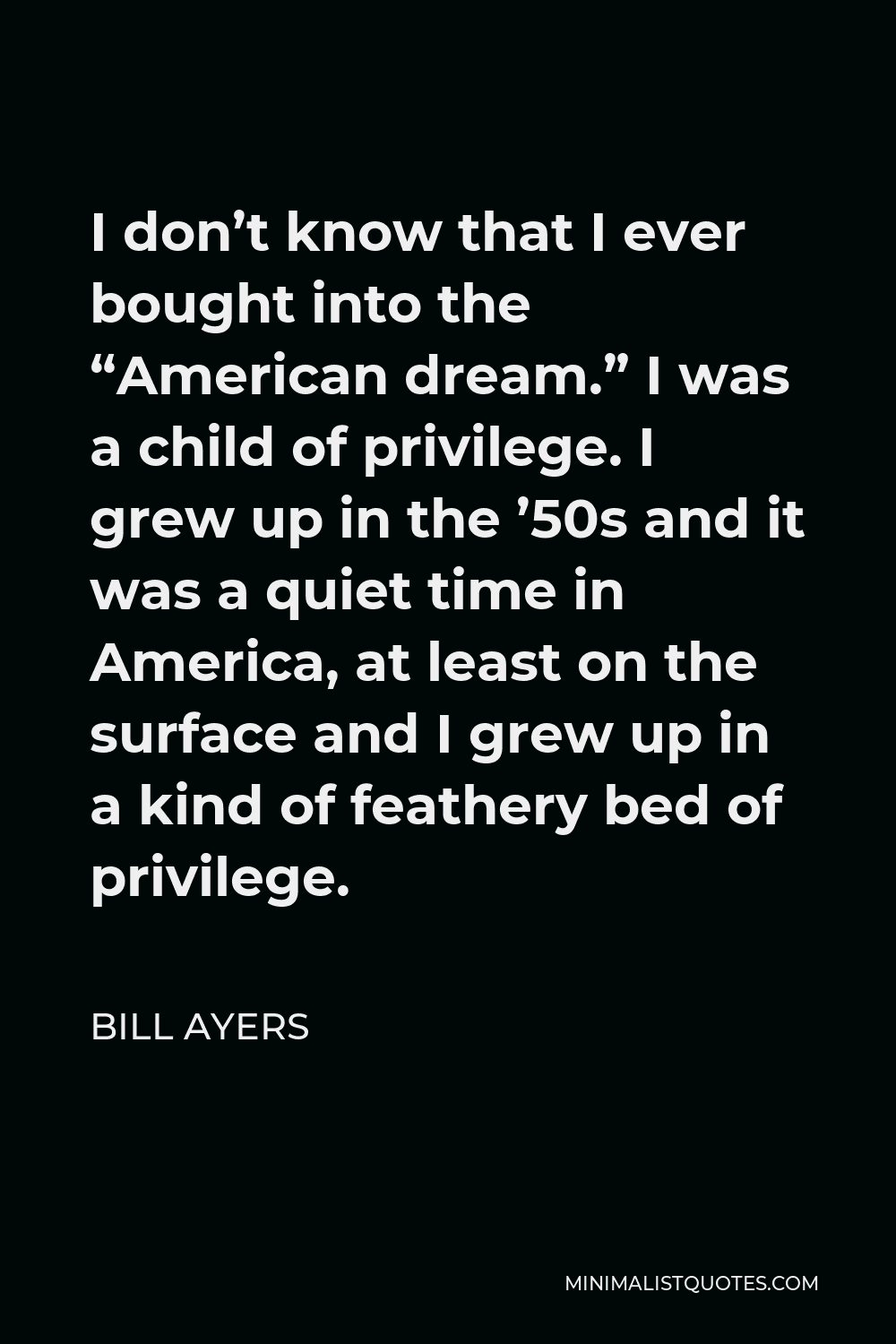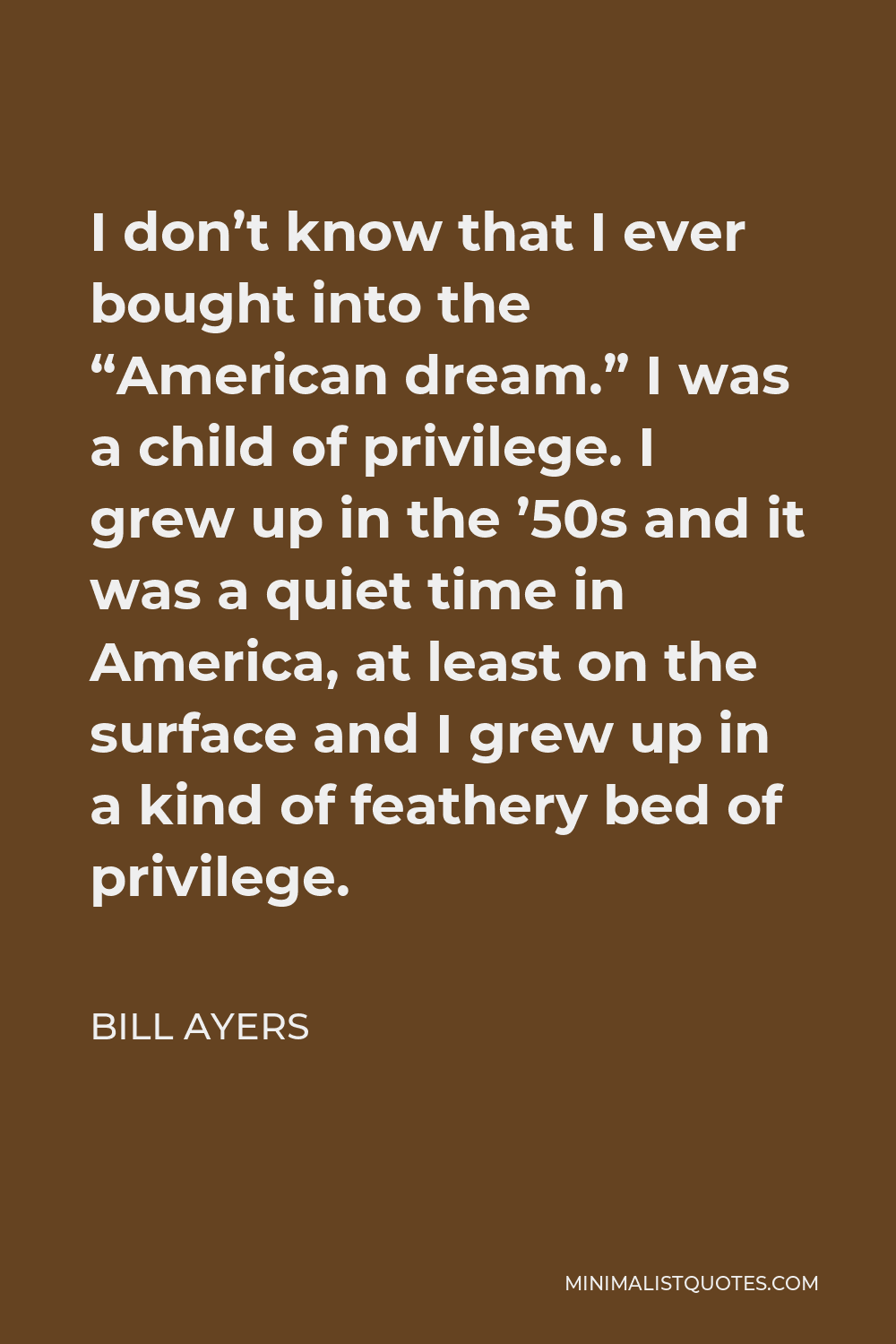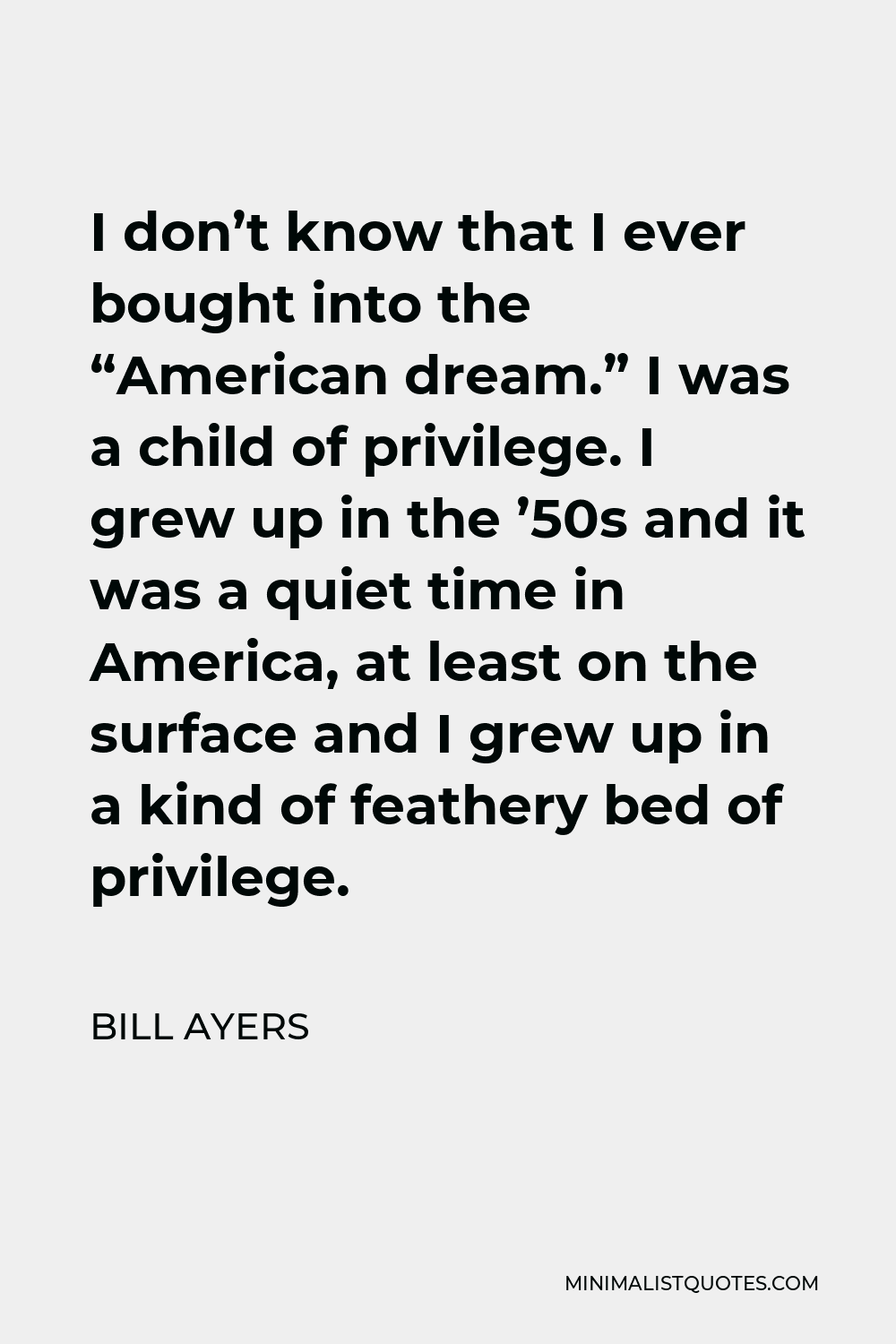One-hundred facts about Vietnam and we studied the fact sheet and got in to these arguments and it was fantastic, and I remember one moment when we heard two students saying don’t talk to those guys, meaning my brother and me.
BILL AYERSI don’t know that I ever bought into the “American dream.” I was a child of privilege. I grew up in the ’50s and it was a quiet time in America, at least on the surface and I grew up in a kind of feathery bed of privilege.
More Bill Ayers Quotes
-





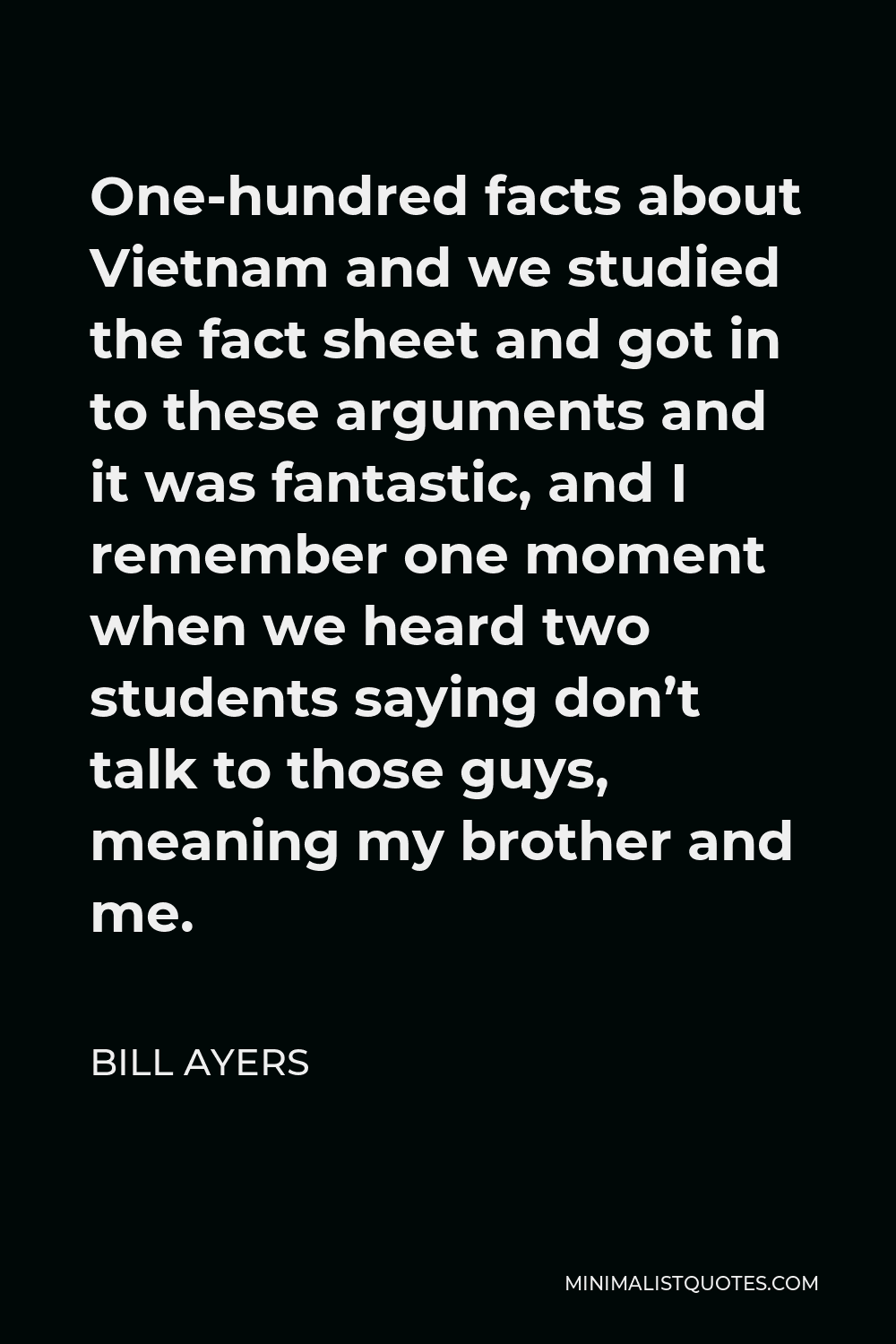
-





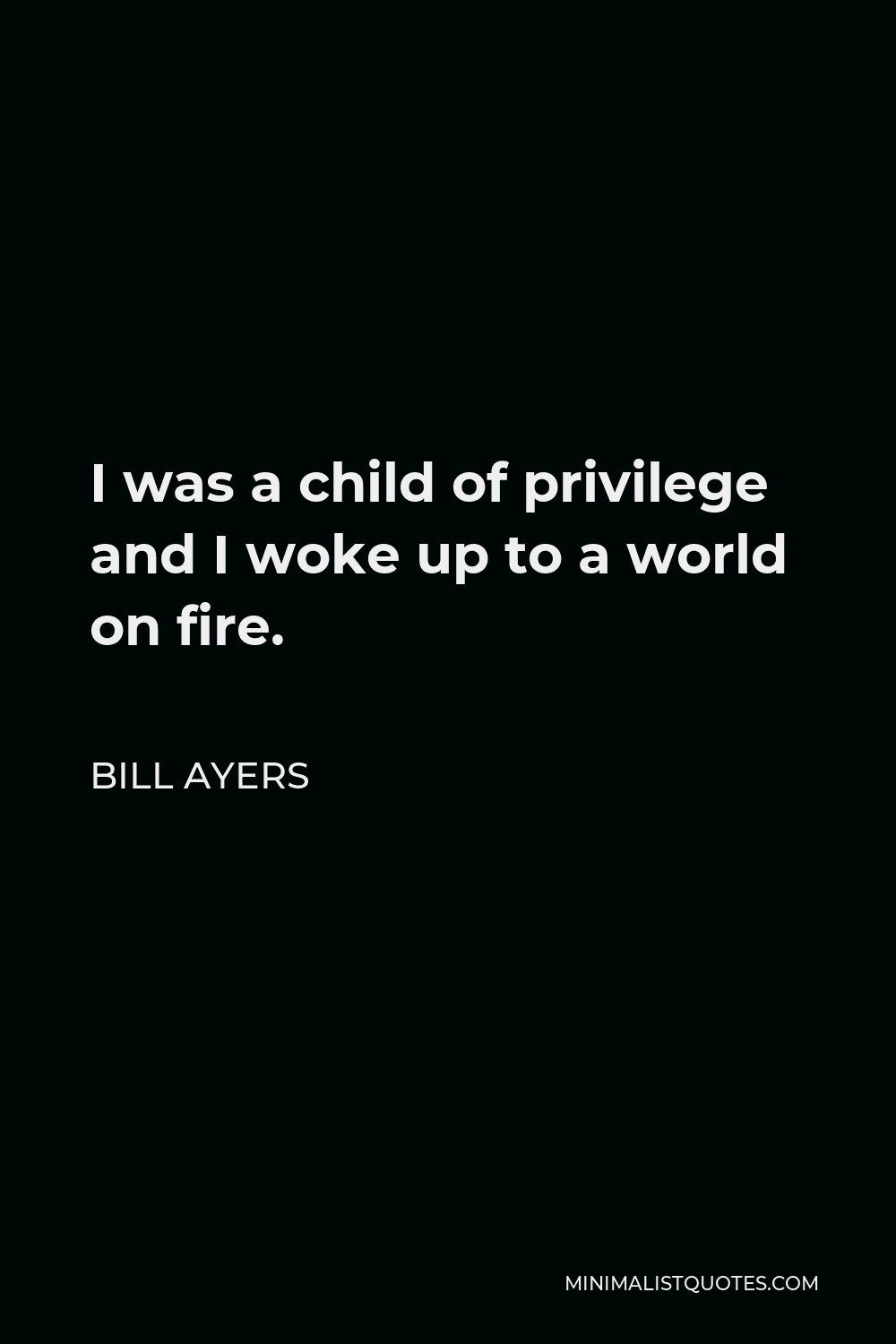
I was a child of privilege and I woke up to a world on fire.
BILL AYERS -





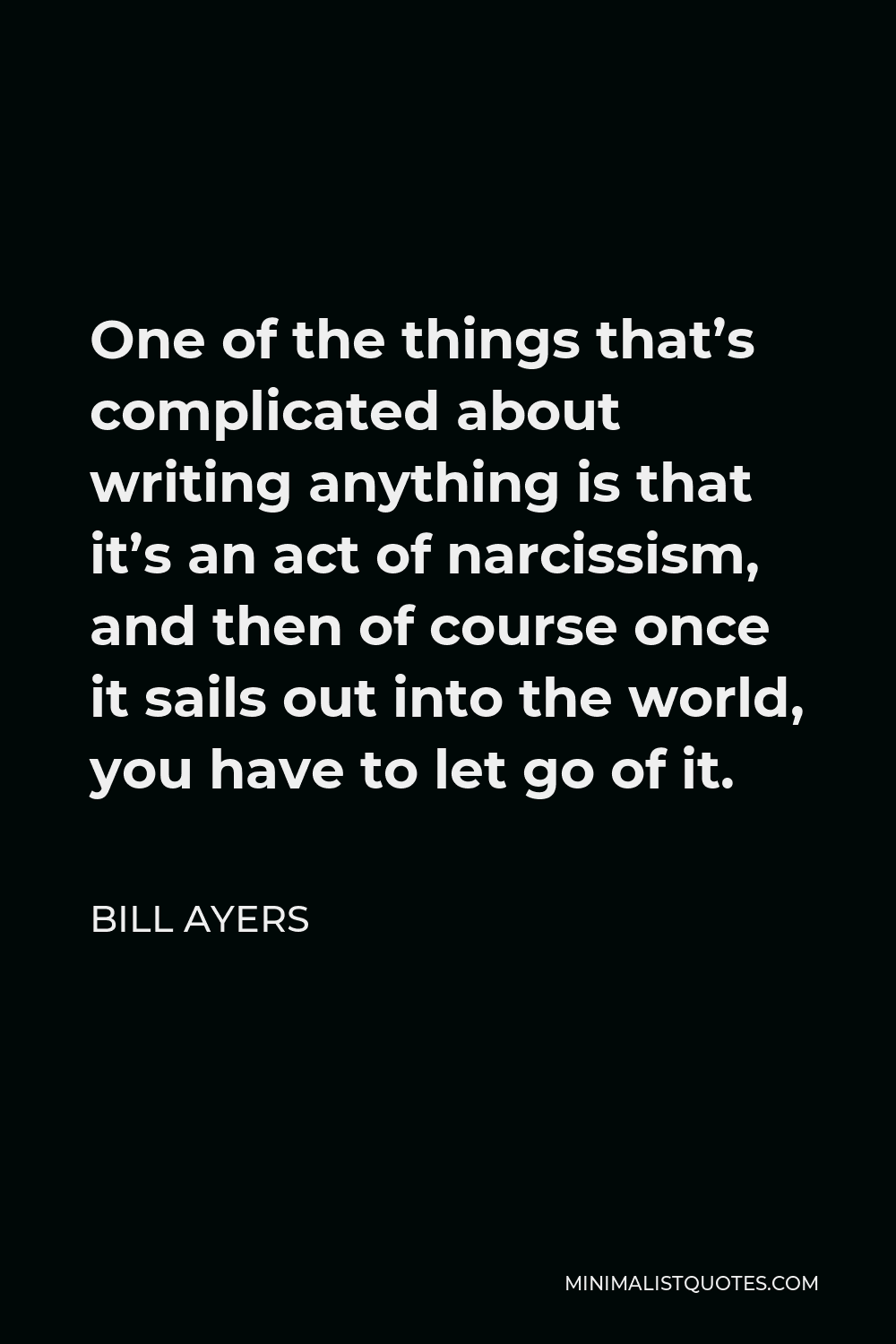
One of the things that’s complicated about writing anything is that it’s an act of narcissism, and then of course once it sails out into the world, you have to let go of it.
BILL AYERS -





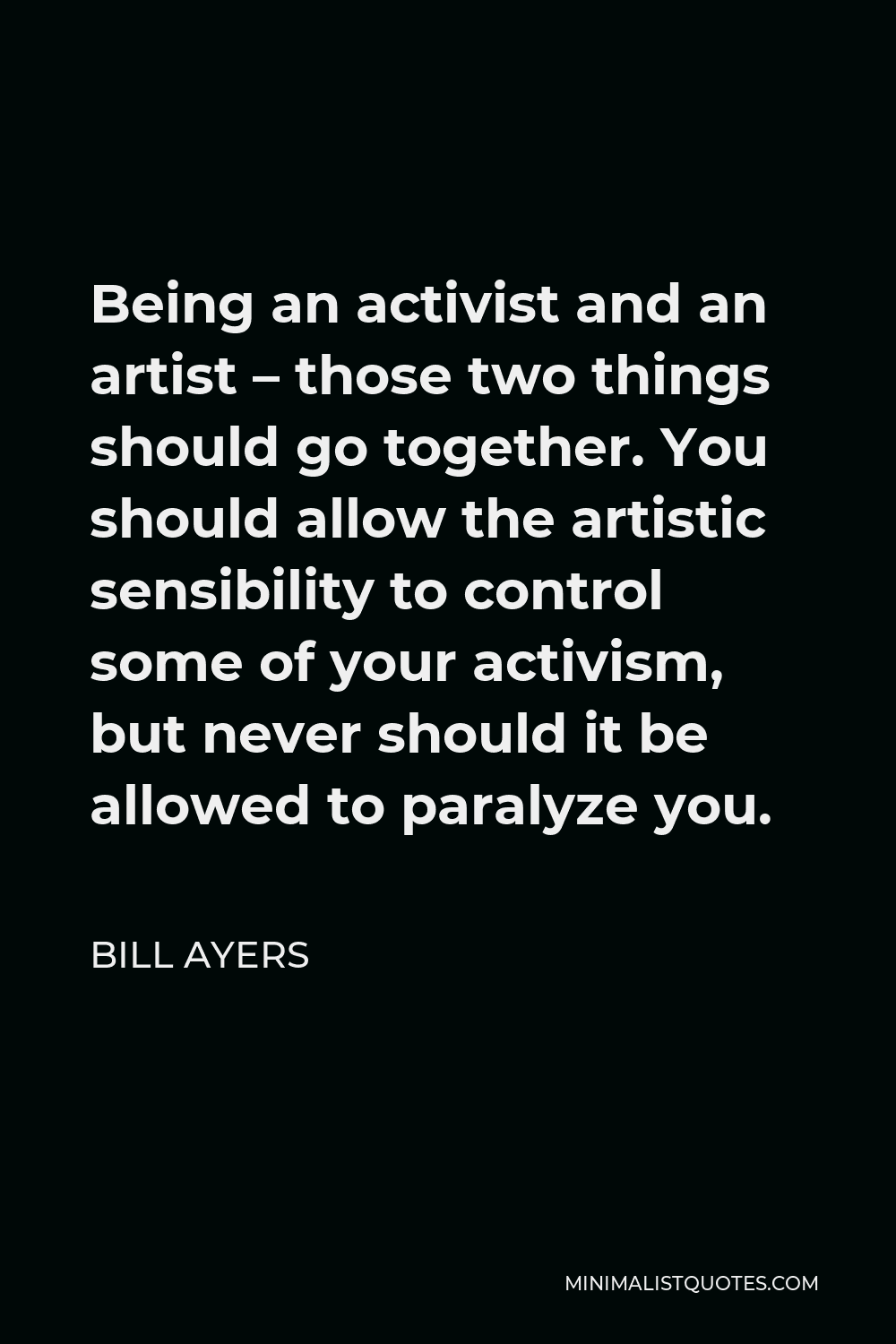
Being an activist and an artist – those two things should go together. You should allow the artistic sensibility to control some of your activism, but never should it be allowed to paralyze you.
BILL AYERS -





![Bill Ayers Quote - I’d been arrested many times by then. I’d been an organizer, so many things had changed over those three years [from 1965 till 1968].](https://minimalistquotes.com/images/id-been-arrested-many-times-by-then-id-been-an-org.jpg)
I’d been arrested many times by then. I’d been an organizer, so many things had changed over those three years [from 1965 till 1968].
BILL AYERS -





![Bill Ayers Quote - Frederick Douglass ran a primary campaign against [Abraham Lincoln] the second time around, in 1864. They hated him. Why’d they hate him? Because he said things like “I believe in white supremacy.”](https://minimalistquotes.com/images/frederick-douglass-ran-a-primary-campaign-against-.jpg)
Frederick Douglass ran a primary campaign against [Abraham Lincoln] the second time around, in 1864. They hated him. Why’d they hate him? Because he said things like “I believe in white supremacy.”
BILL AYERS -





![Bill Ayers Quote - It wasn’t [Barack] Obama per se; it was the feeling on the ground; it was seeing an old black woman in a wheelchair being wheeled by her son waving a big American flag, and then seeing a guy with his baby in his arms saying,](https://minimalistquotes.com/images/it-wasnt-barack-obama-per-se-it-was-the-feeling-on.jpg)
It wasn’t [Barack] Obama per se; it was the feeling on the ground; it was seeing an old black woman in a wheelchair being wheeled by her son waving a big American flag, and then seeing a guy with his baby in his arms saying,
BILL AYERS -





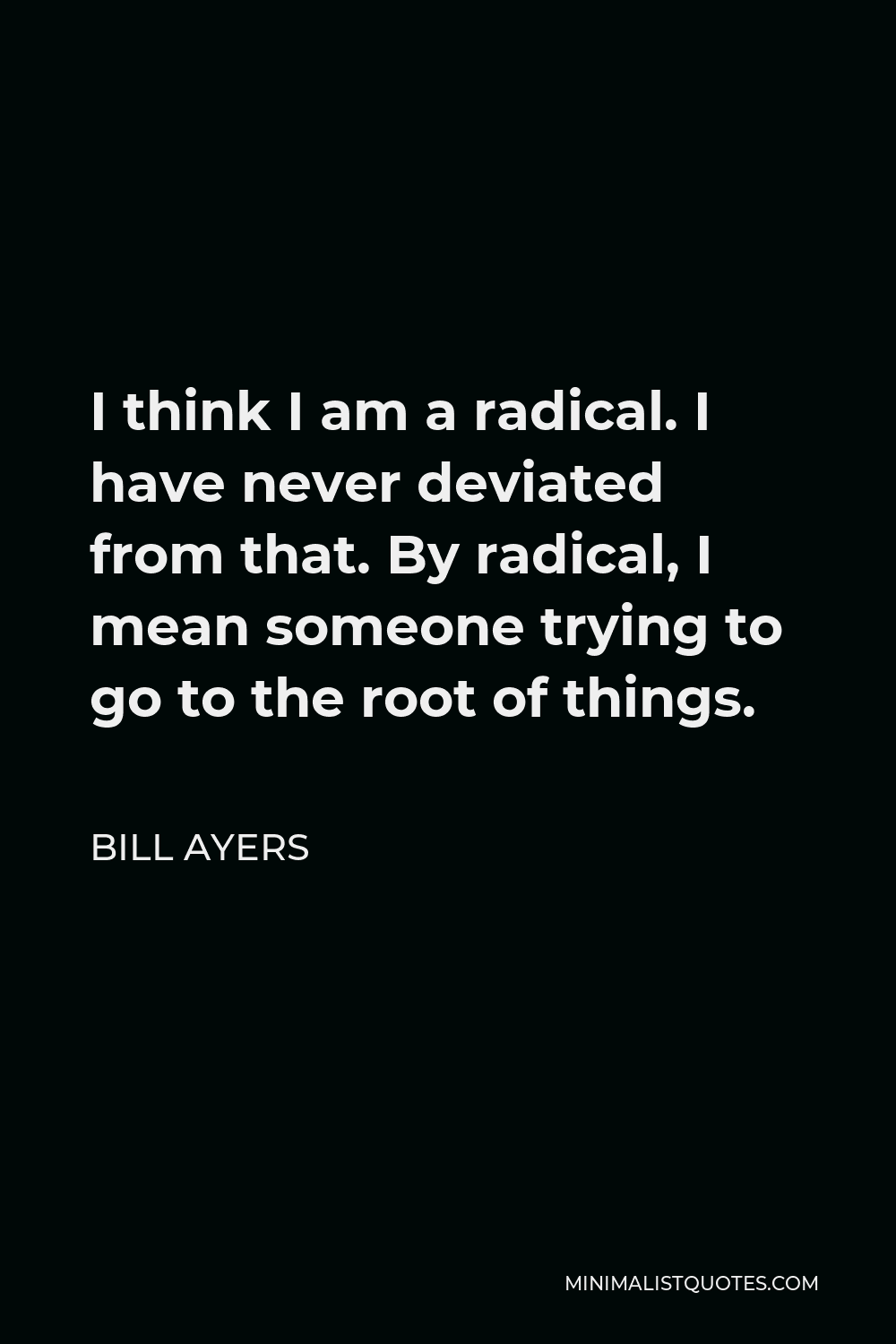
I think I am a radical. I have never deviated from that. By radical, I mean someone trying to go to the root of things.
BILL AYERS -





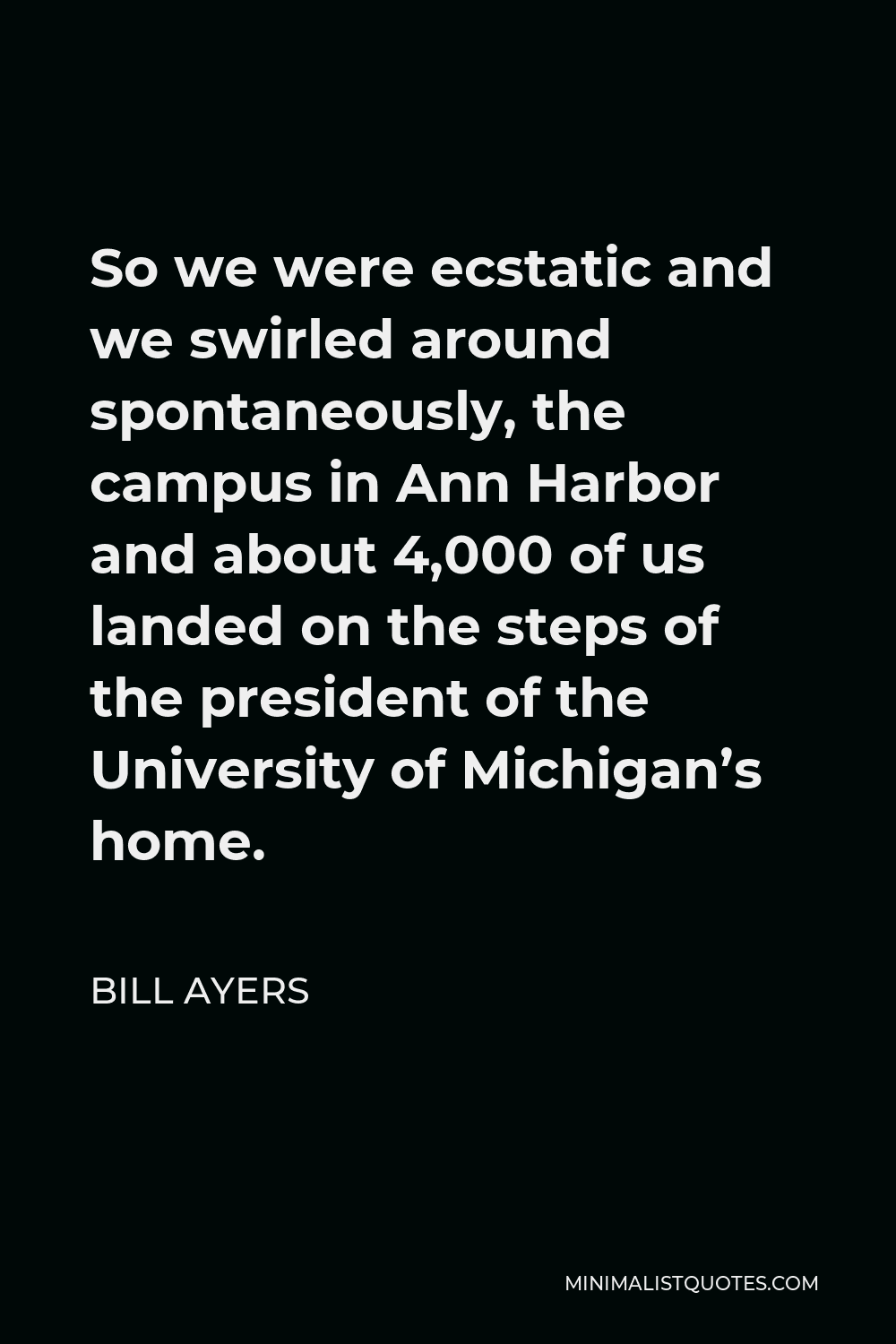
So we were ecstatic and we swirled around spontaneously, the campus in Ann Harbor and about 4,000 of us landed on the steps of the president of the University of Michigan’s home.
BILL AYERS -





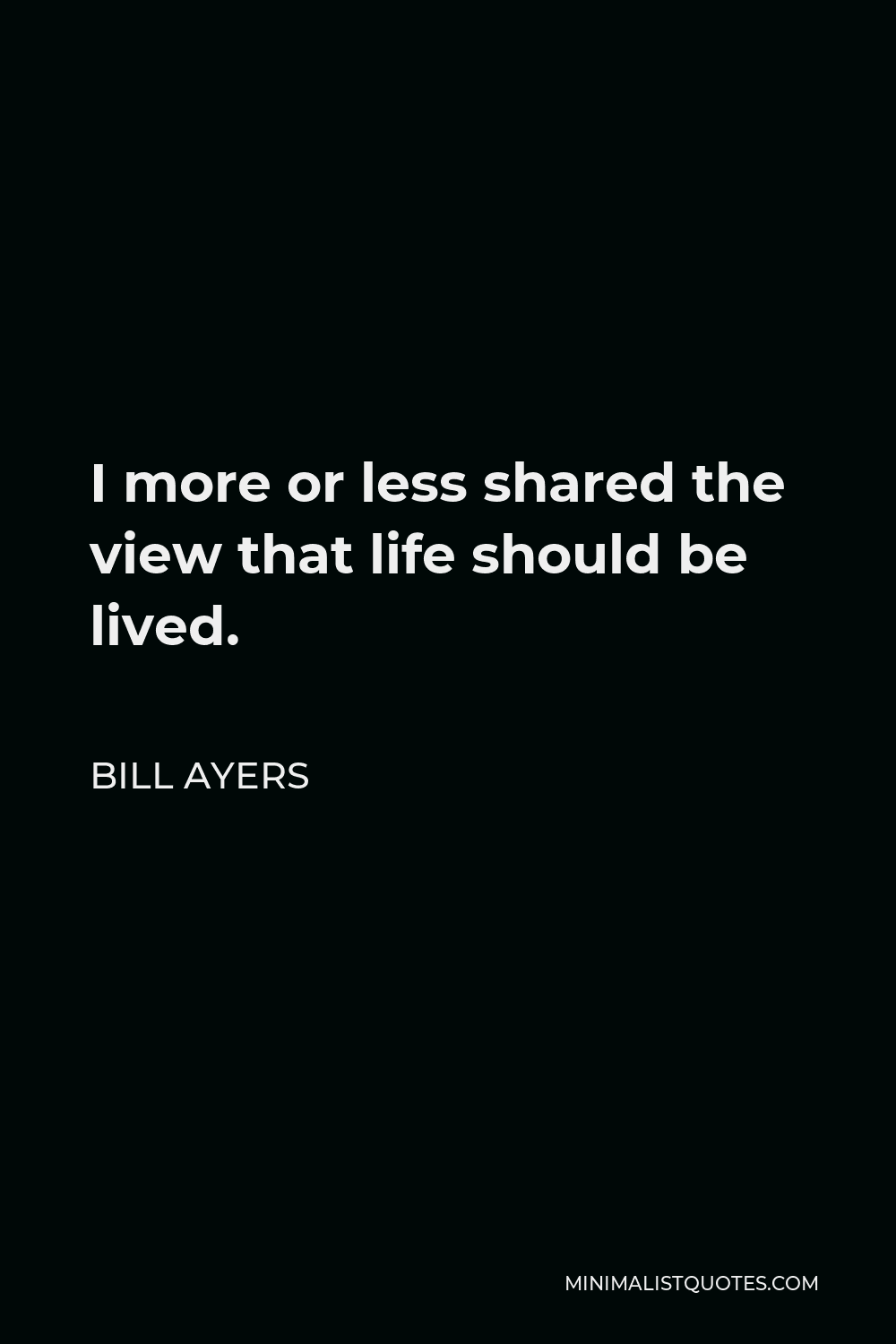
I more or less shared the view that life should be lived.
BILL AYERS -





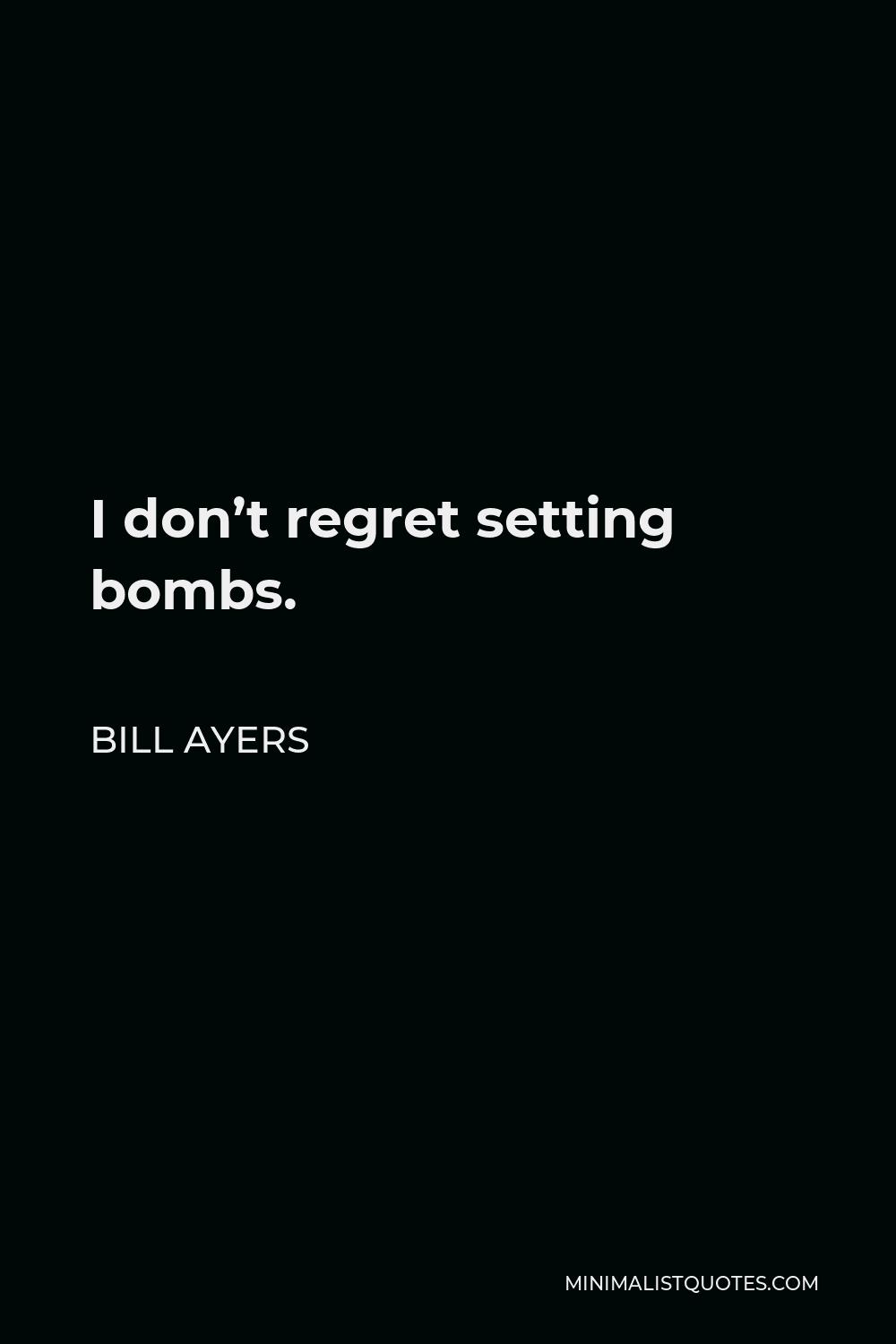
I don’t regret setting bombs.
BILL AYERS -





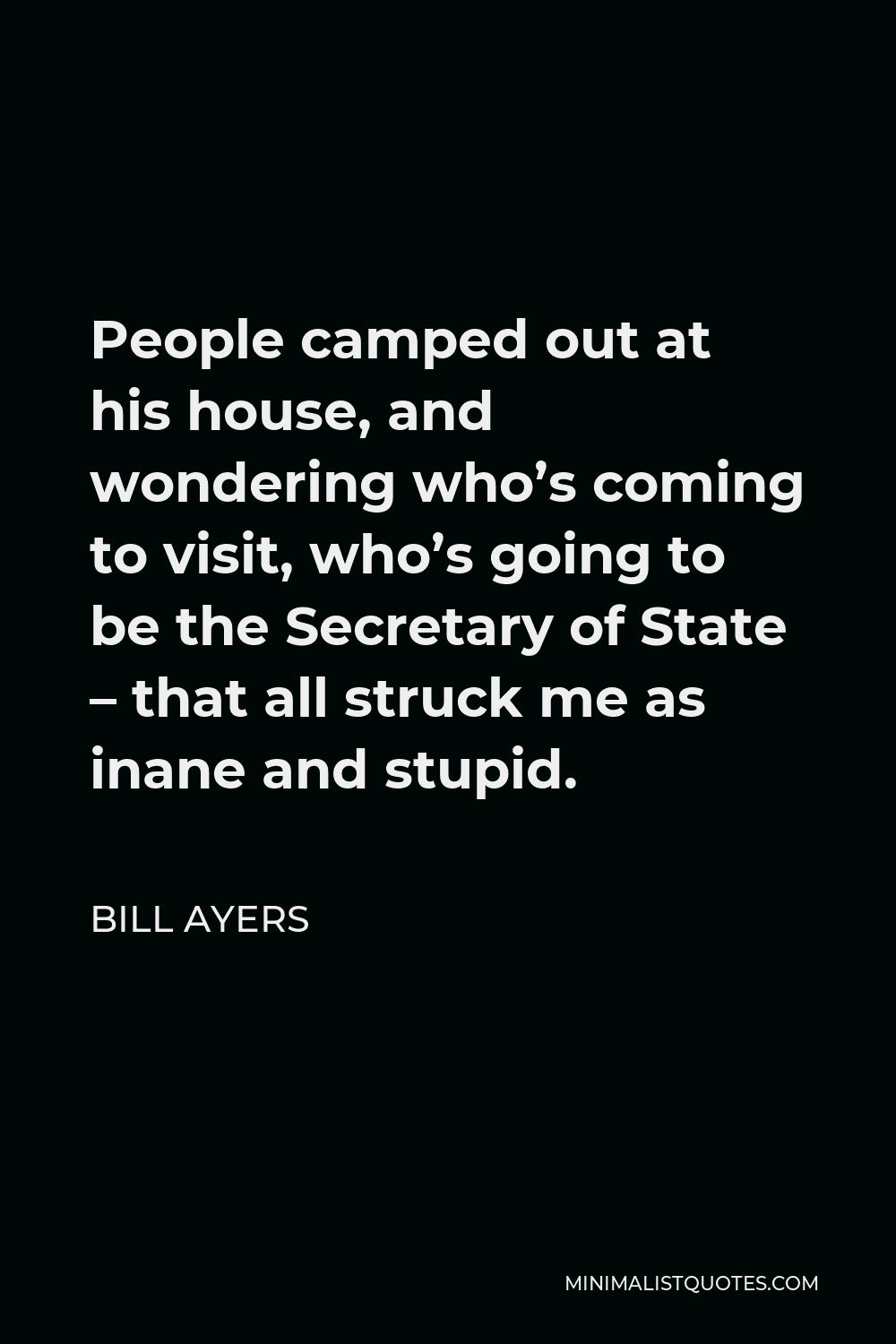
People camped out at his house, and wondering who’s coming to visit, who’s going to be the Secretary of State – that all struck me as inane and stupid.
BILL AYERS -





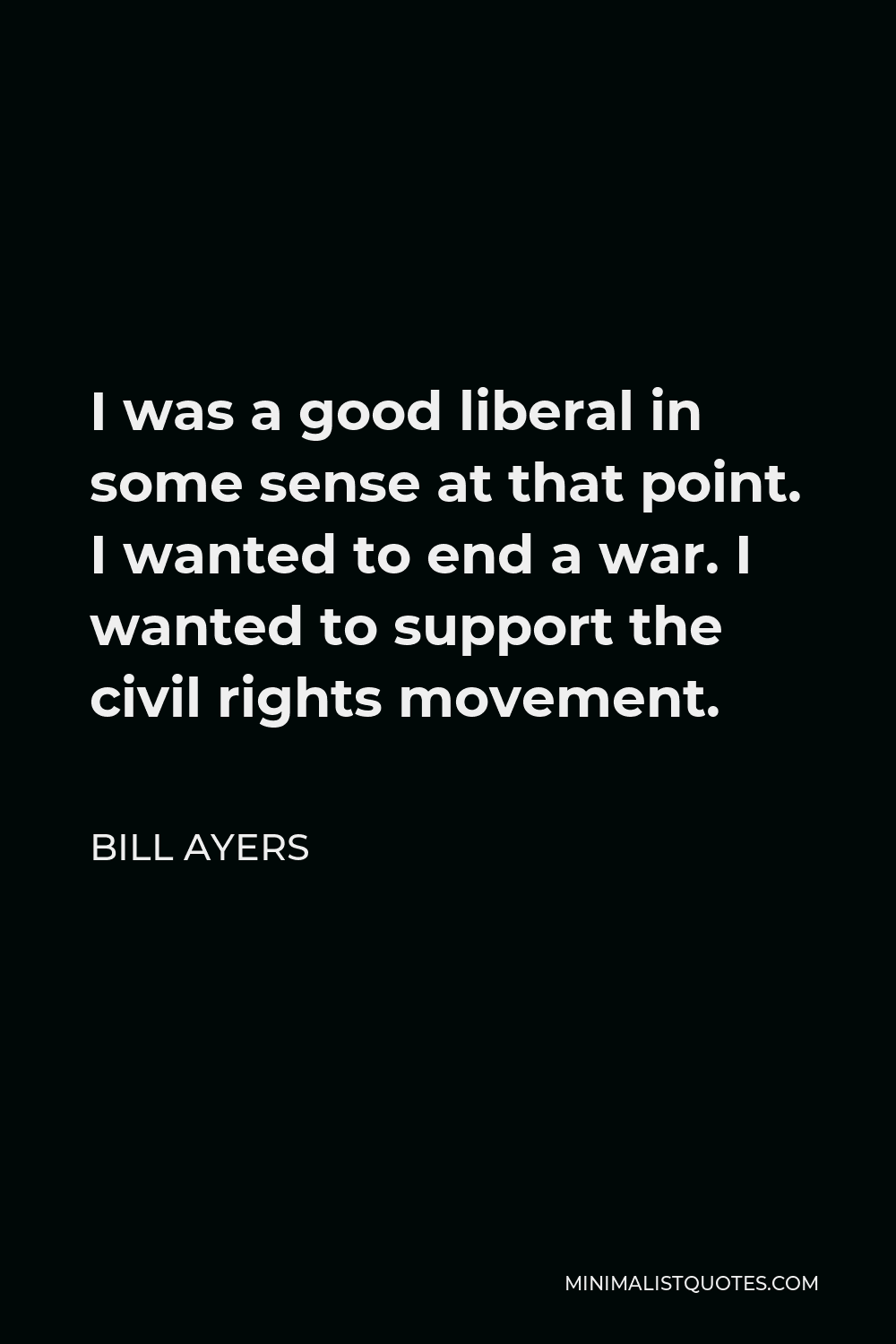
I was a good liberal in some sense at that point. I wanted to end a war. I wanted to support the civil rights movement.
BILL AYERS -





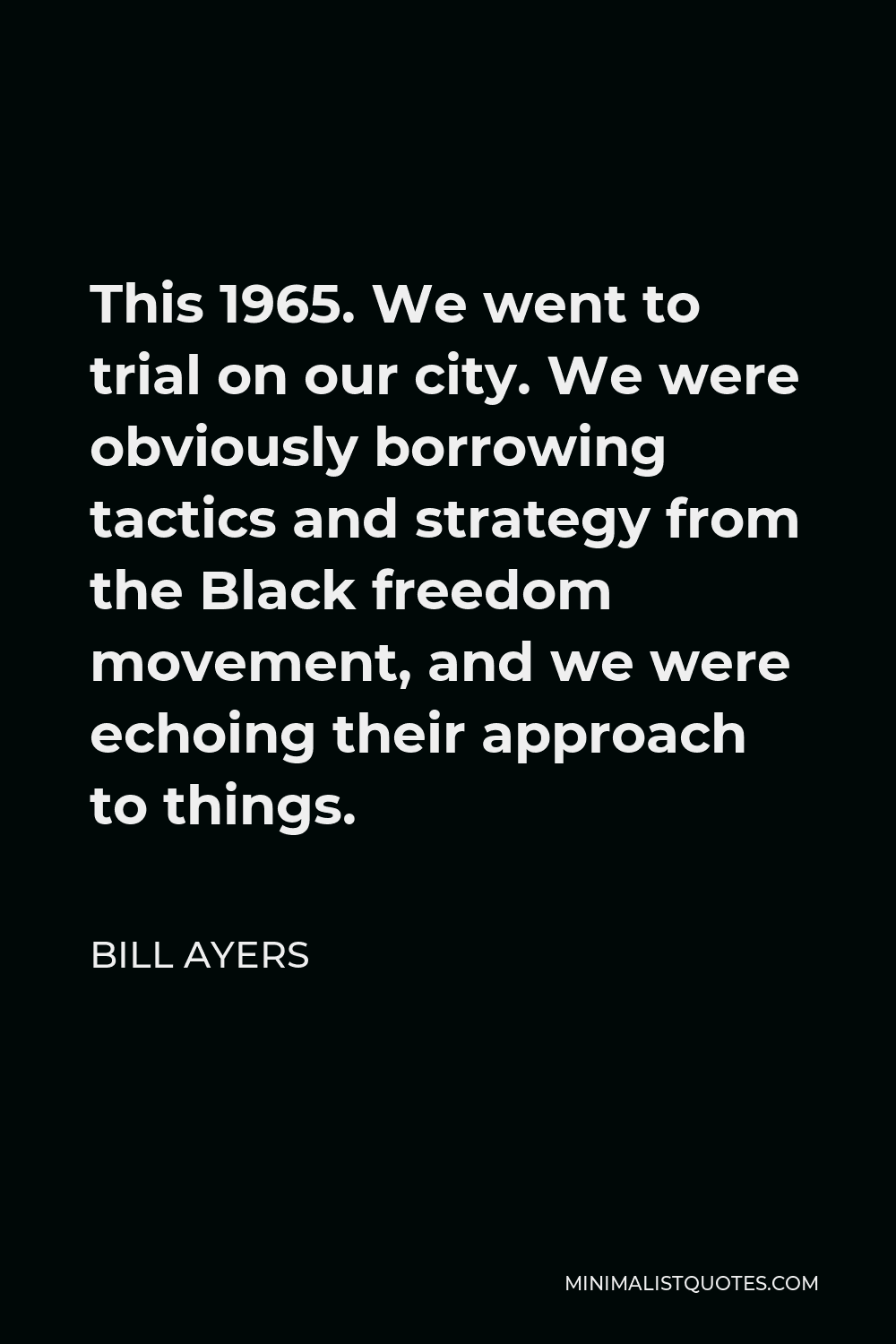
This 1965. We went to trial on our city. We were obviously borrowing tactics and strategy from the Black freedom movement, and we were echoing their approach to things.
BILL AYERS -





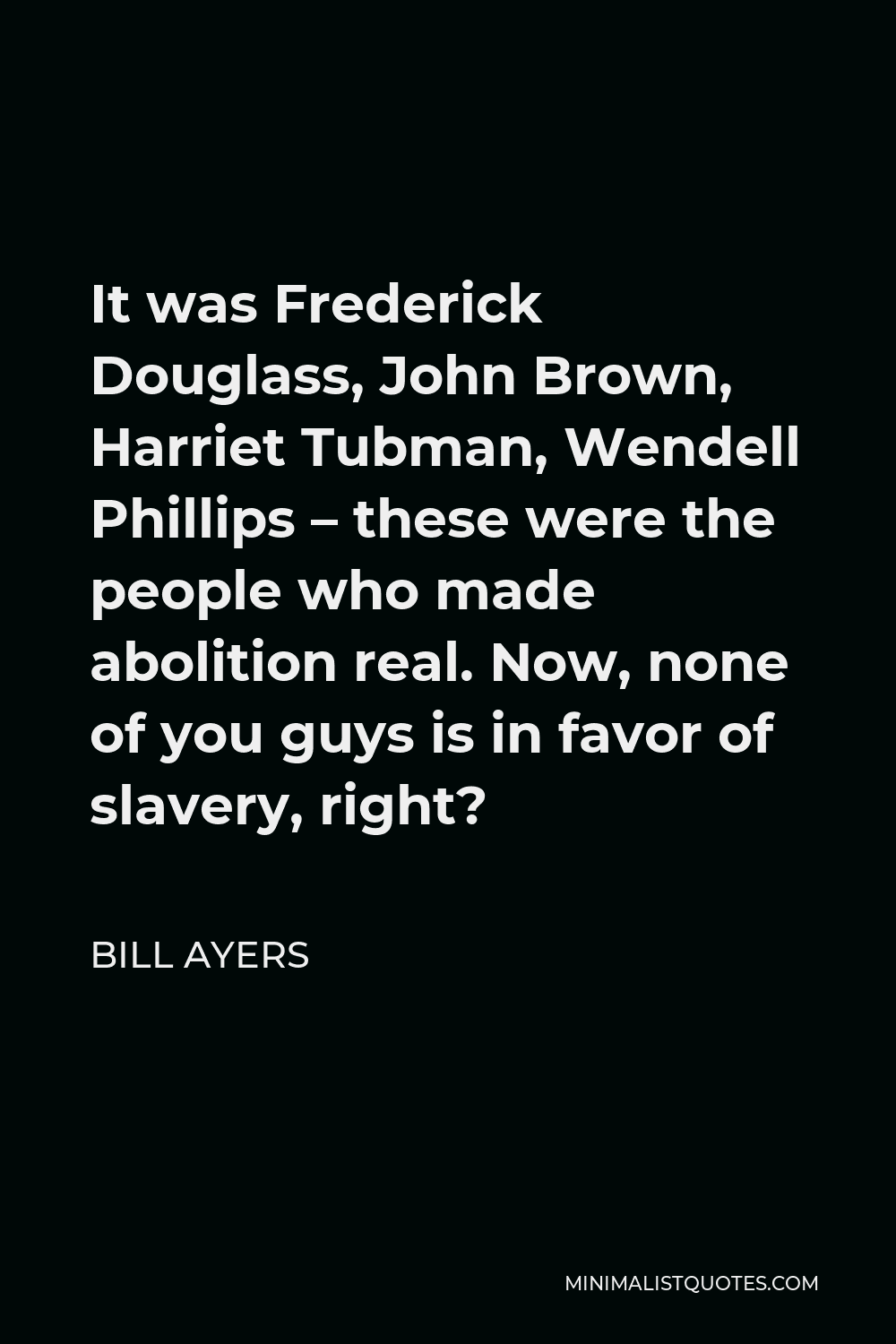
It was Frederick Douglass, John Brown, Harriet Tubman, Wendell Phillips – these were the people who made abolition real. Now, none of you guys is in favor of slavery, right?
BILL AYERS -





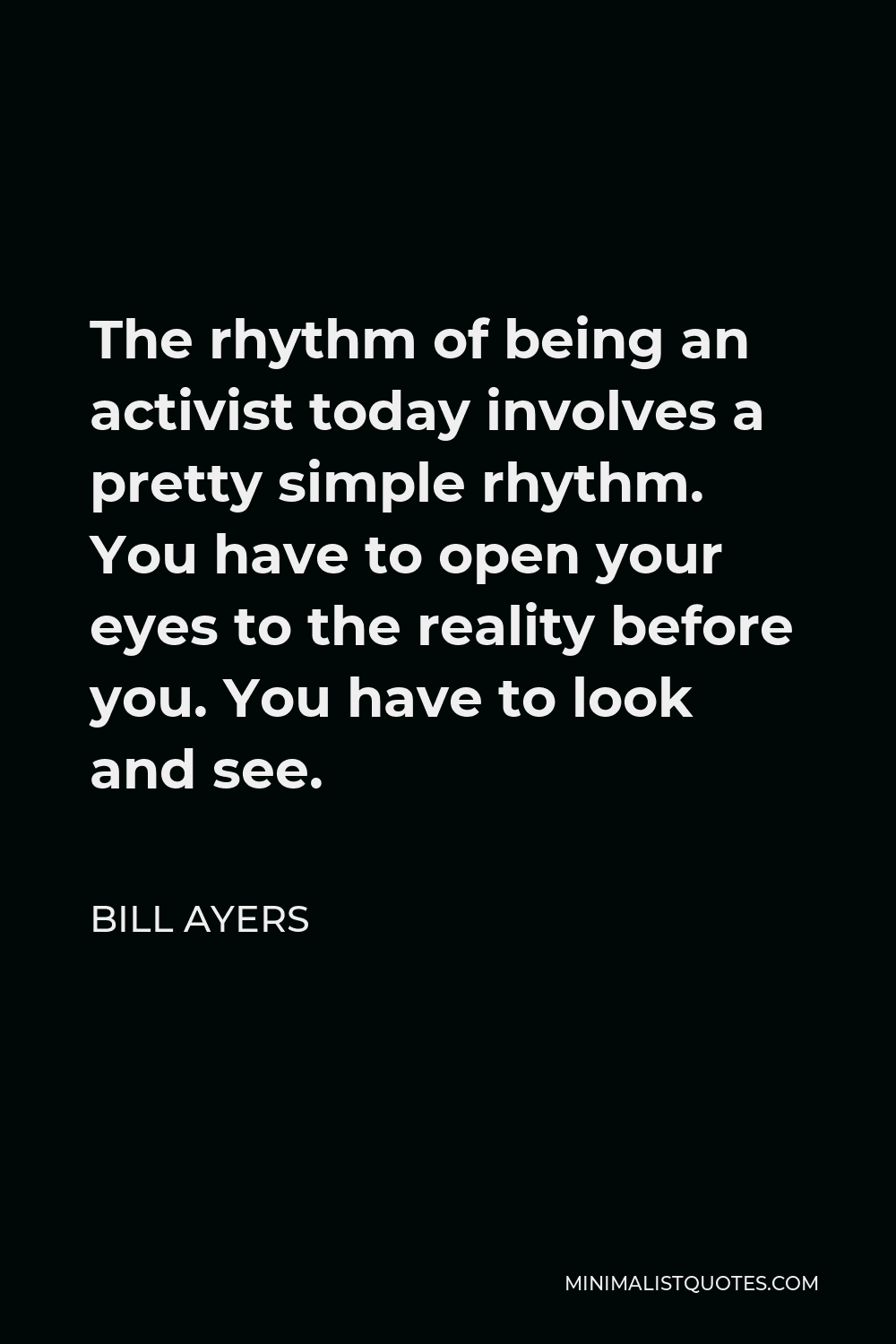
The rhythm of being an activist today involves a pretty simple rhythm. You have to open your eyes to the reality before you. You have to look and see.
BILL AYERS

